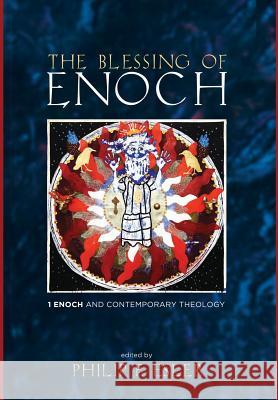The Blessing of Enoch » książka
The Blessing of Enoch
ISBN-13: 9781532614262 / Angielski / Twarda / 2017 / 244 str.
The Blessing of Enoch
ISBN-13: 9781532614262 / Angielski / Twarda / 2017 / 244 str.
(netto: 183,60 VAT: 5%)
Najniższa cena z 30 dni: 192,78
ok. 16-18 dni roboczych.
Darmowa dostawa!
In recent decades the ancient apocalyptic work 1 Enoch has been intensively explored for its historical meaning and its contribution to Israelite and Christ-movement thought and identity. Yet its theological meaning, what it can contribute to understanding of the divine-human interface today, has been neglected by scholarship. This is surprising given that 1 Enoch is Scripture for the Ethiopian and Eritrean Orthodox churches and has been a major influence on Christian theology, experience, and art in Ethiopia since the fifth and sixth centuries CE. This book inaugurates a project in Western scholarship to bring 1 Enoch into theological discussion. It contains a number of essays delivered at meetings in Addis Ababa, Ethiopia, and Cheltenham, England, involving scholars from Ethiopia, Germany, the UK, and the USA. The papers cover topics such as the appropriate theological response to a text that is Scripture for only some Christians; the role of 1 Enoch in Ethiopian ecclesial and theological tradition; the theological potential of 1 Enoch in areas such as the environment, politics, social justice, Christology, persecution, the problem of evil and how 1 Enoch stimulates artistic expression today. The Blessing of Enoch aims to launch a wider discussion on 1 Enoch and contemporary theology. ""This volume breaks new ground in the study of the Enoch literature. On the one hand, it brings traditional Ethiopian commentary, which is virtually unknown in the West, into the discussion. On the other, it takes seriously what the Enochic books have to say on topics of theological interest. A new departure in the study of the pseudepigrapha."" --John J. Collins, Holmes Professor of Old Testament, Yale University ""Building upon extensive historical work, this collection of essays uniquely identifies ways in which 1 Enoch provides an important resource for contemporary reflection in doctrine and ethics. Richly illustrated and diverse in content, the volume will advance our understanding of the theological significance of this ancient text."" --David Fergusson, Professor of Divinity and Principal of New College, University of Edinburgh ""For most of us brought up with the Western canon of Scripture, 1 Enoch is like a relative who emigrated long ago. Its words are occasionally referred to in passing (even quoted) by our Bibles, but we've never encountered their source. This remarkable set of essays changes all that. First Enoch here rejoins the family of texts to which it is so deeply related and addresses our present concerns in its own powerful voice."" --Ben Quash, Professor of Christianity and the Arts, King's College London Philip F. Esler is Portland Chair of New Testament Studies in the University of Gloucestershire in Cheltenham, England. He is the author of Babatha's Orchard (2017) and the editor of the second edition of The Early Christian World (2017).











